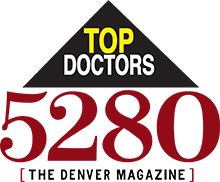
Importance of Having a Schedule When Social Distancing
Since the onset of the COVID-19 pandemic, most of us have had to adopt new lifestyles that include staying indoors most of the time, maintaining strict distances with strangers, and adding new hygiene habits. As we become more accustomed to our new way of life, we are also learning how to optimize our new behaviors including social distancing.
You are probably realizing that life in a pandemic requires more planning than our days used to. For example, since the government issued guidelines for face covering in public, you now need to plan and prepare for any excursion to the grocery store or pharmacy. Like all of us, you are learning that scheduling your day is now essential to minimizing your exposure to COVID-19.
Why Social Distancing Is Important
Despite what you may have heard from certain unreliable sources, there is no vaccine or cure for COVID-19, so getting infected could be a fatal health problem. Although many people may not get seriously ill from this infection, many others—including the elderly and those with conditions like asthma or diabetes—could end up hospitalized or dead. Currently more than 211,000 people have died from COVID-19 around the world including 58,000 in the United States.
That may not seem like a truly disastrous number, considering there are 7 billion humans on the planet, but there are some frightening aspects to this disease that should give you pause.
- COVID-19 is very infectious—the R-naught or R0 of a disease is a measure of how contagious it is. It is currently believed that the R0 of COVID-19 is between 2 and 2.5, meaning that an infected person will spread the illness to more than two people on average. In other words, if left unchecked, COVID-19 infections double every generation.
- COVID-19 can be transmitted asymptomatically—one of the key reasons why COVID-19 is so contagious is that people who are infected can transmit it to others without showing any signs of sickness. That means this disease can rapidly spread through entire communities almost invisibly.
- COVID-19 is quite lethal—current estimates using global number of confirmed cases and reported deaths pegs the lethality of COVID-19 between 4 and 5 percent. Although you should note that this figure is likely to come down as testing expands, COVID-19 is still likely to be much more dangerous than influenza.
- Health care system is overwhelmed—in places like New York City, New Orleans and Detroit, hospitals are stretched almost to the breaking point. There is an enormous need for masks and protective gear, ICU beds, ventilators and health care personnel as the number of COVID-19 patients surge.
Given the extreme contagiousness of this disease allowing it to spread to all areas of society and its elevated lethality, it is imperative that the public do what it can to slow the spread of COVID-19. If we don’t take protective measures early on, then the U.S. health care system could collapse under the weight of the patient surge. This collapse would mean more physicians and nurses sick, with fewer health care professionals to treat COVID-19 patients as well as others in need of medical care.
Ultimately, remaining in isolation, maintaining six feet apart, and practicing good hygienic habits can limit the risks of COVID-19 spreading too rapidly across the U.S., but success requires that everyone opt-in to these social distancing practices.
Plan Ahead
It may not seem like it now, but rest assured that life as we know it has changed completely. We will no longer be able to stroll casually through crowds of people because COVID-19 will remain a concern for years to come. Even if a vaccine or cure is developed, the remnants of this pandemic will forever alter our society.
Right now, you probably have enough free time to deliberate before you go to the grocery or doctor’s office, but that could change in the days ahead. You should get into the habit of scheduling all of the activities that your day holds, so that you can adequately prepare.
Here are some social distancing tips that can help you as you meet the challenges of a COVID-19 pandemic:
- Stay home—if you don’t need to go out, don’t. It can be frustrating locked inside for long periods of time, but the best way to avoid contracting COVID-19 is to stay away from anyone you don’t know.
- Know where the bathroom is—if you are unfamiliar with a locale, quickly peruse the area until you find the nearest bathroom. That way you can quickly wash your hands if you are near someone who sneezes or coughs.
- Keep several masks with you—if you are going out in public, then wear a face mask. If possible keep several masks on you so that you can replace the one you are wearing if you touch your mask or you get too close to someone else.
- Position yourself—if you find yourself in a crowded location, try to position yourself away from others, near a window or air vent so that your inhalation of germs is minimized.
- Take cleaning supplies—carry around hand sanitizer and microbial wipes for when you touch unknown surfaces. Liberally apply these prior to touching your face or commonly used items like your phone.
- Limit your trips—plan ahead so that you can make a minimum number of essential trips. Get all of the groceries or medications you need for a week or two, so that you don’t need to return soon.
- Doctor’s visits—if you do feel sick, consult your physician by phone or video call before you head to their office. If your physician recommends that you come in, follow their orders that may include wear a face mask.
- Protecting the vulnerable—you may have elderly or people with health conditions in your home. If so, take care not to endanger them after a trip outside. Wash your hands and wipe down any goods that you bring home with you.
Article written by: Dr. Robert Moghim – CEO/Founder Colorado Pain Care
M.D. Disclaimer: The views expressed in this article are the personal views of Robert Moghim, M.D. and do not necessarily represent and are not intended to represent the views of the company or its employees. The information contained in this article does not constitute medical advice, nor does reading or accessing this information create a patient-provider relationship. Comments that you post will be shared with all visitors to this page. The comment feature is not governed by HIPAA and you should not post any of your private health information.



